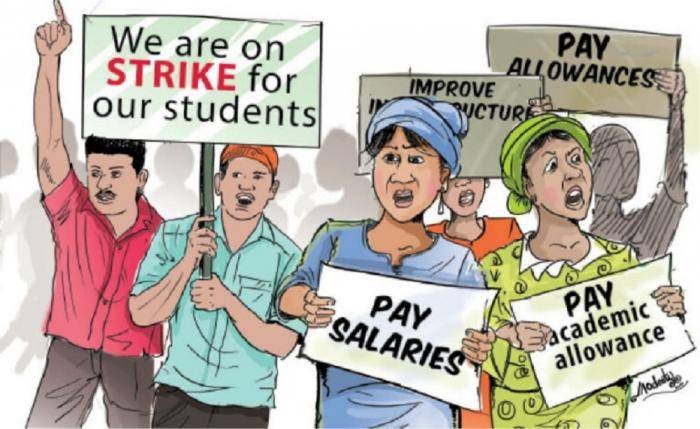
FG Should Provide Resources Beyond ASUU’s Demand:
There is a paradox governments have built around education — they are spending billions of Naira on education, yet the financial issues around education are not being resolved. The Academic Staff Union of Universities, ASUU, strike is only one of many matters that are dogging education.
Government’s supposed interests in negotiating with ASUU, the speed being applied, and the uttermost neglect of other aspects of education confirm the diminishing importance that governments attach to education.
ASUU’s case is exceptional, in that governments appeared concerned. When the Academic Staff Union of Polytechnics, ASUP, went on strike, it took almost three months before governments started talking to the union. The issue remains partially resolved.
With the ASUU strike, the failure of governments and their programmes are obvious. Governments sign agreements they do not intend to keep. ASUU is on strike over a 2009 agreement. Governments want to re-negotiate implementation of a four-year-old agreement.
Similar Posts:
They also know that the negotiations for a new agreement are due. We have governments that plan for immediate needs, if they ever do. They are exhausting themselves over ASUU strike as if meeting ASUU’s demands would resolve the challenges that our education faces, among them irrelevant curricula.
How do governments spend billions of Naira they budget annually for education? Bureaucracy consumes the bulk of the money. Duplication of agencies that manage education is the biggest cost centre in our national education management. Governments are running up new costs.
New higher institutions are being built with emphases on physical structures. Laboratories, libraries and research centres that they require to be centres for meaningful academic engagements are available in inadequate numbers.
It is absurd that governments — the owners of the universities — would need an ASUU strike to determine the status of the facilities in universities.
What plans do governments have for education? How would they tackle sustainable funding so that we are not soon back to another wave of strikes in a matter of months? Would governments ever consider education important enough that it should run without disruptions from strike?
There would be no easy solutions. Many of the federal agencies on education just drain resources that should have been invested in improving learning facilities. States imitate the federal waste, making education one of governments’ biggest cost centres, without commensurate value for the expenditures.
Governments can save costs by eliminating duplication in the functions of education agencies. There should be clearer lines about the roles of governments at different levels of education. The Federal Government should not be dabbling into primary school education.
Finally, the future of education is too important to be left to haphazard funding. Governments should provide resources for education beyond ASUU’s demands.
Source: Vanguard


